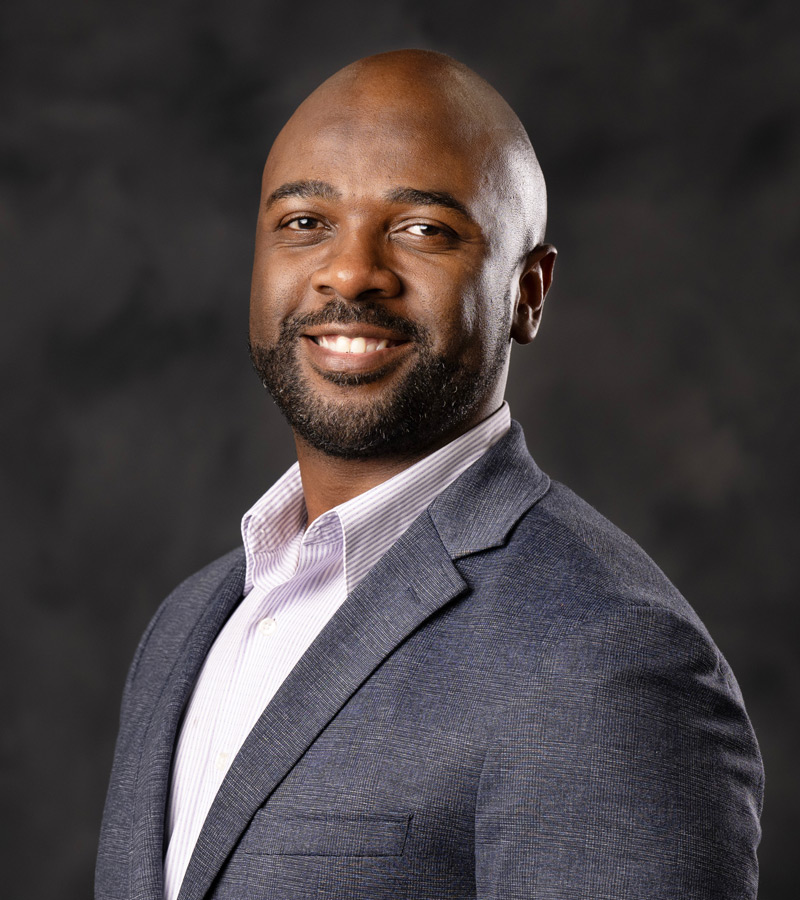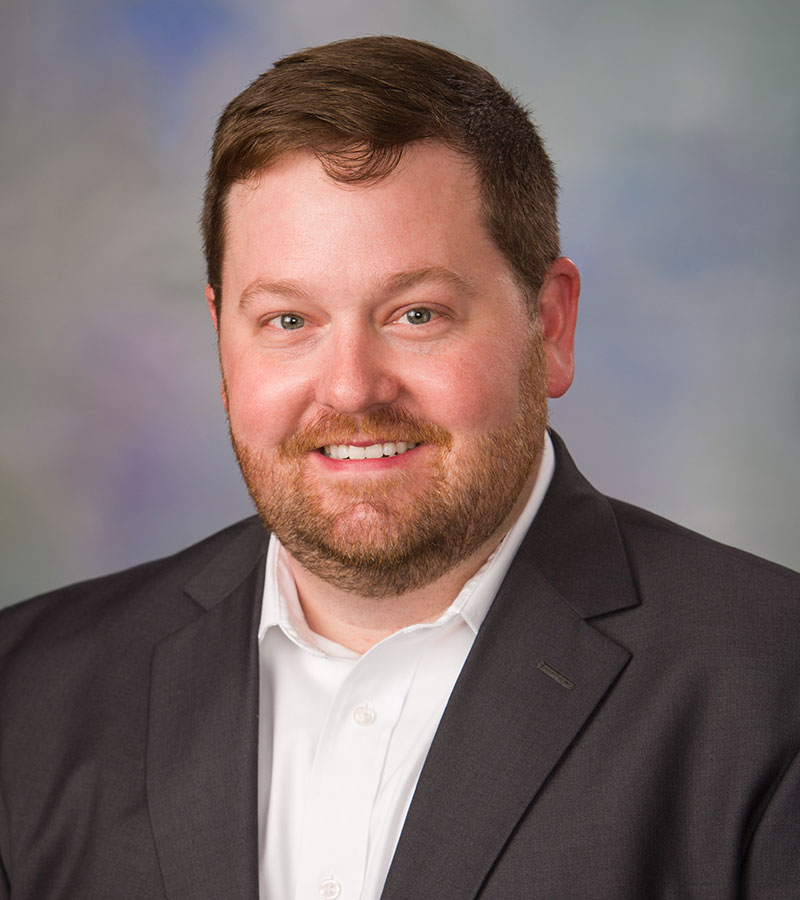Quick Links
- Concentrations
- Admissions Requirements
- Educational Requirements
- Student Admissions, Outcomes, & Other Data
- Handbooks
- Partnerships
- Career Opportunities with the Psy.D.
- Required Courses
- Faculty/Staff
The Doctor of Psychology (Psy.D.) degree in Combined Health Service Psychology is an applied clinical doctorate degree that focuses on providing health service training for those who wish to become practicing psychologists. Upon successful completion of the program, students will possess the skills necessary to provide psychological health services to diverse populations in a variety of applied settings (e.g., in-patient and out-patient medical settings, non-profit organizations, government agencies, private companies, educational settings). Students will complete course work in foundational and discipline-specific psychology, problem-solving to address psychological needs of diverse clientele, and application of research design, data collection, and analysis techniques culminating in a capstone project.
Students in the program select a concentration in Clinical, Counseling, or School Psychology. They may also select courses for an emphasis (Clinical and Counseling only), an experience, or an exposure. It is important to note that, in some cases, the selection may require additional hours beyond the required for the Psy.D. degree.
Earning a Psy.D. degree in Combined Health Services Psychology with concentrations in Clinical, Counseling, and /or School Psychology can create numerous career opportunities in the field of psychology. The program is designed to prepare graduates to become licensed clinical psychologists and provide quality care to individuals, families, and communities. Students in a Psy.D. program can expect to receive comprehensive training in clinical assessment, intervention, and psychotherapy, among other areas. The program emphasizes the importance of applying psychological principles to real-world problems, and graduates are equipped with the skills and knowledge necessary to provide effective treatment and improve mental health outcomes. Pursuing a Psy.D. degree can lead to rewarding careers in private practice, community mental health centers, hospitals, and other healthcare settings.
Concentrations
Clinical Psychology
Those who seek a concentration in Clinical Psychology will focus on the science of psychology to treat complex human problems and mental disorders. In addition to foundational courses, students will complete additional course work designed to provide them with knowledge and skills to address behavioral and mental health issues faced by individuals across the lifespan including:
- Adjustment issues and traumatic stress reactions,
- Emotional and psychological problems, including serious mental illness and crisis intervention,
- Interpersonal or social problems and dysfunction, and
- Behavioral problems including substance abuse and dependence, intellectual, cognitive, and neurological conditions.
Counseling Psychology
Those who seek a concentration in Counseling Psychology will focus on facilitating personal and interpersonal functioning across the lifespan. In addition to foundational courses, students will complete additional course work designed to provide them with knowledge and skills to focus on normative developmental and mental health issues and challenges faced by individuals across their lifespan, as well as systemic challenges (such as prejudice and discrimination) experienced in groups, workplaces, organizations, institutions, and communities. They will use strengths-based perspectives and practices to prevent and ameliorate emotional, relational, physical/health-related, social, cultural, vocational, educational, and identity-related problems.
School Psychology
Those who seek a concentration in School Psychology will focus on work in schools and related systems of care to support the behavioral/mental health and educational success of children and youth. In addition to foundational courses, students will learn to use their knowledge and skills to provide services to learners and the systems and agencies that serve them and their families including:
- Individuals from birth to young adulthood presenting learning or behavior problems, mental disorders evident in infancy, childhood, or adolescence, and those with specific disabilities, chronic, or acute conditions of childhood and adolescence,
- Families who request services and assistance with academic and behavioral problems at home and at school, and
- Organizations and agencies, teachers, and other adults to enhance healthy relationships and environments that promote learning and development.
The curriculum is designed with academic and experiential components to ensure alignment with requirements of the American Psychological Association (APA), APA’s Commission on Accreditation (CoA), and the National Association of School Psychologists (NASP) Program Approval Board (School Psychology concentration only) and lead to licensure/credentials in the appropriate concentration. Students in the Combined Health Service Psychology Psy.D. program should expect to develop critical thinking and application skills to prepare them to complete a year-long internship as part of their curricular requirements. This internship, completed under supervision of licensed professionals, will allow students to further develop their knowledge and skills in health service psychological provision to address the needs of a variety of individuals.
Students can earn a Master of Science in Health Services Psychology or School Counseling or Educational Specialist in School Psychology while completing the Psy.D. program if desired.
Admission Requirements
- A completed graduate application. Click HERE to access this directly.
- Statement of purpose detailing your professional goals and how those goals fit the program to which you are applying.
- Names and email addresses for three references including two professional contacts and one instructor/professor who can speak to your academic ability. The admissions office will send them a link to an online reference form. Do not list family members and please inform your references so they can expect to be contacted by the admissions office.
- A minimum 3.0 GPA (bachelor’s degree) for admission to M.S. programs and a recommended minimum 3.3 GPA (master’s degree) for admission to Ed.S. and Psy.D. programs.
- Participation in a campus visit and interview.
- Current medical immunization record.
All documentation and official transcripts must be submitted to the graduate school for the M.S., Ed.S., and Psy.D. degree programs.
Educational Requirements
The PsyD program is designed to meet the requirements of the American Psychological Association (APA), APA’s Commission on Accreditation (CoA), and the National Association of School Psychologists (NASP) Program Approval Board (School Psychology concentration only) to lead to licensure/credentials in the appropriate concentration. Students can choose one or more concentrations in Clinical, Counseling, or School Psychology.
Students in the program should expect to develop critical thinking and application skills to prepare them to complete 2000 hours of field experience as part of their curricular requirements. The curriculum includes academic and experiential components and culminates in a capstone or applied research project instead of a traditional dissertation. Graduates of the program will be eligible for licensure as a psychologist in Mississippi.
Admission to the program is evaluated based on qualitative and quantitative criteria, and applicants must have a degree in a related mental health field or education (e.g., social work, educational psychology, counseling, human services). Applicants must include a statement of purpose that explains why the applicant would like to pursue the degree, three letters of recommendation, and transcripts with their application. Upon review of materials, highly qualified applicants will also be invited to complete an interview (in-person or virtual) with faculty.
Student Admissions, Outcomes, and Other Data
Data Coming Soon
- Program Disclosures
- Time to Program Completion
- Program Costs (Tuition & Fees) and fellowships and other funding available
- Internship Acceptance Rates
- Student Attrition Rates
- Licensure Outcomes
Handbooks
Partnerships
Faculty and Staff in MSU Meridian’s Division of Education are working to create partnerships for field experiences and internships.
Career Opportunities with the Doctor of Psychology
A PsyD degree prepares graduates for a variety of career opportunities in mental health counseling and therapy. Graduates can work in private practice, community mental health centers, hospitals, and other healthcare settings. Some of the job titles that graduates of a Psy.D. program can hold include licensed psychologist, clinical director, mental health program manager, clinical supervisor, therapist, and counselor. Graduates can specialize in a variety of areas, such as marriage and family therapy, substance abuse counseling, trauma counseling, and child and adolescent therapy. With the increasing demand for mental health services, there is a growing need for licensed psychologists with advanced training.
Required Courses
| Major required courses | Required hours | |
|---|---|---|
| COE 6903 | Developmental Counseling and Mental Health | 3 |
| COE 8023 | Counseling Theory | 3 |
| COE 8073 | Cultural Foundations in Counseling | 3 |
| EPY 8113 | History & Systems of Psychology | 3 |
| EPY 8263 | Psychological Testing ni Educational and Related Settings | 3 |
| EPY 8933 | Integrated Psychoeducational Assessment | 3 |
| EPY 9443 | Single-Subject Designs in Education | 3 |
| EPY 9703 | Contemporary, Legal, Ethical and Professional Issues in School Psychology | 3 |
| ED 9314 | System- and Individual-level Consultation, Supervision, & Mentoring | 4 |
| EPY 8723 | Individual Assessment for Educational and Related Settings | 3 |
| PSY 6403 | Biological Psychology | 3 |
| PSY 8323 | Psychopathology | 3 |
| PSY 8383 | Behavior Therapy | 3 |
| HSPY 8413 | Integrated Foundations of Cognitive/Affective/Social | 3 |
| EPY 8690 | Practicum | 12 |
| ED 9913 | Capstone Seminar | 3 |
| ED 8620 | Capstone Project ** | 6 |
| HSPY 9730 | Internship in Health Service Psychology * | 9 |
| Total Major Required Hours | 73 | |
| Concentration in Clinical Psychology | ||
|---|---|---|
| PSY 8333 | Systems of Psychotherapy | 3 |
| PSY 8573 or COE 8373 | Psychopharmacology or Medical Aspects of Disability | 3 |
| COE 8043 | Group Techniques and Procedures | 3 |
| Electives (select 9 hours from one of the following Emphasis Areas): | 9 | |
| Child and Family Emphasis | ||
| PSY 8373 | Child Psychopathology and Treatment of Childhood Disorders | |
| COE 8913 | Counseling Children | |
| EPY 8123 | Infant & Toddler Assessment | |
| COE 8303 | Family Counseling Theory | |
| Abuse Emphasis | ||
| COE 8763 | Counseling Sexually Abused Clients | |
| COE 8773 | Counseling the Chemically Dependent Client | |
| COE 8783 | Counseling the Chemically Dependent Family | |
| Total Concentration Hours | 18 | |
| Concentration in Counseling Psychology | ||
|---|---|---|
| PSY 8333 | Systems of Psychotherapy | 3 |
| COE 8703 | Principles of Mental Health Counseling | 3 |
| COE 8043 | Group Techniques and Procedures | 3 |
| Electives (select 9 hours from one of the following Emphasis Areas): | 9 | |
| Child/Family | ||
| PSY 8373 | Child Psychopathology and Treatment of Childhood Disorders | |
| COE 8913 | Counseling Children | |
| EPY 8123 | Infant & Toddler Assessment | |
| COE 8303 | Family Counseling Theory | |
| COE 8783 | Counseling the Chemically Dependent Family | |
| COE 8183 | Utilizing Art and Art Therapy in Counseling | |
| Age Span | ||
| COE 8143 | Grief Counseling | |
| COE 8813 OR PSY 6983 | Counseling the Chemically Dependent Client OR Psychology of Aging | |
| COE 8743 | Counseling LGBTQ: Awareness, Mental Health, & Advocacy | |
| COE 8573 | College Counseling | |
| COE 8913 | Counseling Children Abuse | |
| COE 8763 | Counseling Sexually Abused Clients | |
| COE 8773 | Counseling the Chemically Dependent Client | |
| COE 8783 | Counseling the Chemically Dependent Family | |
| Work Force | ||
| COE 6373 | Vocational Assessment of Special Needs Persons | |
| COE 8203 | Placement and Career Development | |
| COE 8383 | Job Placement in Rehabilitation | |
| COE 8753 | Stress Management | |
| PSY 6523 | Industrial Psychology | |
| Total Concentration Hours | 18 | |
| Concentration in school psychology | ||
|---|---|---|
| EPY 6133 | Data-based Decisioin Making | 3 |
| EPY 8133 | Crisis Prevention & Intervention | 3 |
| EPY 8703 | School Psychology | 3 |
| EPY 8493 | Social/Emotional & Behavior Assessment | 3 |
| EPY 8773 | Assessment & Intervention for Academic Skills | 3 |
| Electives (select 3 hours from the following): | 3 | |
| EPY 8123 | Infant & Toddler Assessment | |
| COE 8183 | Utilizing Art and Art Therapy in Counseling | |
| COE 8913 | Counseling Children | |
| Total Concentration Hours | 18 | |
*Students must complete 2000 hours of field experience.
**Students will complete a capstone or applied research project in stead of a traditional dissertation.
Faculty & Staff
Advisors

Kimberly Hall, Ph.D., LPC-S, NCC, NCSC, ACS
Professor and Associate Dean
Phone: 601-484-0189
Fax: 601-484-0280
E-mail: khall@meridian.msstate.edu

Tawny Evans McCleon, Ph.D., NCSP
Associate Professor
Phone: 601-484-0467
Fax: 601-484-0280
E-mail: tne1@msstate.edu

Carlen Henington, Ph.D., NCSP
Professor of Educational and School Psychology
Phone: 601-484-0170
Fax: 601-484-0280
E-mail: ch27@msstate.edu

Rosanne Nunnery, Ph.D., LPC-S, NCC, BC-TMH
Associate Clinical Professor of Counselor Education
Phone: 601-484-0493
Fax: 601-484-0280
E-mail: rn19@msstate.edu

Chase McCullum, Ed.D.
Assistant Teaching Professor
Phone: 601-484-0109
E-mail: ccm54@msstate.edu

Karrie Files
Administrative Assistant I
Phone: 601-484-0248
E-mail: k.files@msstate.edu

Kevin Entrekin
Recruitment Coordinator
Phone: 601-484-0244
Fax: 601-484-0280
E-mail: kre31@msstate.edu